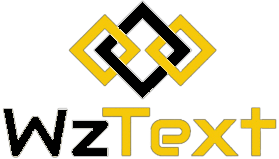One of the best platforms for advancing your career and gaining core technical skills, Microsoft certifications validate your understanding of specific tools and applications. Along with boosting your resume and providing more opportunities for career growth, possessing a Microsoft certification is a testament to your in-depth knowledge about technologies and maximizing productivity.
Microsoft products and services are used widely across the globe and enterprises are always on the lookout for Microsoft certified professionals with expertise in managing its software and tools. Depending upon the field of interest and career path, one can choose from the numerous certifications with different levels of proficiency available in the market.
Read on to know about the various types of Microsoft online courses.
Microsoft certification courses can primarily be divided into two categories:
- Role-Based Credentials – Recommended for Azure and Microsoft 365 developers, administrators, solutions architects, data engineers, data scientists, AI engineers, DevOps engineers, security engineers, and functional consultants.
- Technology-Oriented Credentials – Recommended for IT professionals to improve their skill-set
Role Based-Certifications
Designed for a better understanding of Microsoft applications and services to successfully perform job roles, the role-based certifications can be further divided into 4 groups:
- Fundamentals-Level
Fundamental-level certifications are offered for different Microsoft products including ‘Microsoft 365’, ‘Azure’ and ‘Dynamics 365’. While there are no prerequisites for these courses, the candidate must possess basic knowledge and hands-on experience of the relevant technology.
The course curriculum consists of cloud computing, core product functions, and concepts as well as security, compliance, and privacy of the product. Additionally, the pricing policy and support features are also included in the course structure along with its deployment and release configuration.
- Associate -Level
Often associated with acquiring the skill set to operate particular services, Microsoft offers the following 17 associate-level certifications:
- Modern Desktop Administrator Associate
- Messaging Administrator Associate
- Teamwork Administrator Associate
- Security Administrator Associate
- Developer Associate
- Teams Administrator Associate
- Azure AI Engineer Associate
- Azure Administrator Associate
- Azure Developer Associate
- Azure Security Engineer Associate
- Data Analyst Associate
- Azure Data Scientist Associate
- Azure Data Engineer Associate
- Dynamics 365 Sales Functional Consultant Associate
- Dynamics 365 Marketing Functional Consultant Associate
- Dynamics 365 Customer Service Functional Consultant Associate
- Dynamics 365 Field Service Functional Consultant Associate
- Dynamics 365 Finance Functional Consultant Associate
- Dynamics 365 Supply Chain Management, Manufacturing Functional Consultant Associate
- Dynamics 365 Supply Chain Management Functional Consultant Associate
- Power Apps + Dynamics 365 Developer Associate
- Dynamics 365: Finance and Operations Apps Developer Associate
- Azure Database Administrator Associate
There are no prerequisites to apply for associate-level role-based certifications, although having the relevant fundamental credential is recommended.
- Expert Level
To prepare advanced IT professionals for providing better product services, the expert-level role-based certification is offered for enterprise administrators, solutions architects, and DevOps engineers.
To apply for Microsoft expert-level certification, candidates must possess one of the associate-level role-based credentials in the relevant field.
- Speciality Level
To efficiently implement specialized Azure services, Microsoft offers two speciality certifications:
- Microsoft Certified: Azure for SAP Workloads Specialty
- Microsoft Certified: Azure IoT Developer Specialty
The prerequisites for speciality courses include possessing advanced knowledge and hands-on experience in the relevant field.
Technology-Based Credentials
The following certifications validate a professional’s entry-level skills in the IT field.
- Microsoft Technology Associate (MTA)
Microsoft offers 12 MTA certifications designed to impart fundamental knowledge about Windows, database administration, networking, application development, cloud, security, and programming.
There are no prerequisites to apply for MTA certification but a familiarity with the relevant technology is recommended.
- Microsoft Office Specialist (MOS)
The course certifies that you possess professional-level skills in Microsoft Office suite comprising Word, Excel, PowerPoint, Outlook, Access, and Office365. It is offered at four tiers of certification with increasing levels of difficulty – Specialist, Associate, Expert, and Master.
There are no prerequisites for MOS specialist or associate-level certification but candidates must have passed the relevant examination for expert and master-level certifications.
Important Note: Microsoft has officially retired other technology-based credentials i.e. MCSA, MCSE, and MCSD and all associated exams on January 31, 2021. Professionals who already possess the aforementioned certifications will be able to reference them for up to two years past the deadline.
Final words
Microsoft certification training demonstrates your expertise in real-world skills which play a crucial role in handling and expanding enterprises. You can become an expert on the subject matter upon choosing the Microsoft online course carefully.
Additional Read: Fully Guided Online And In-Person MuleSoft Training

